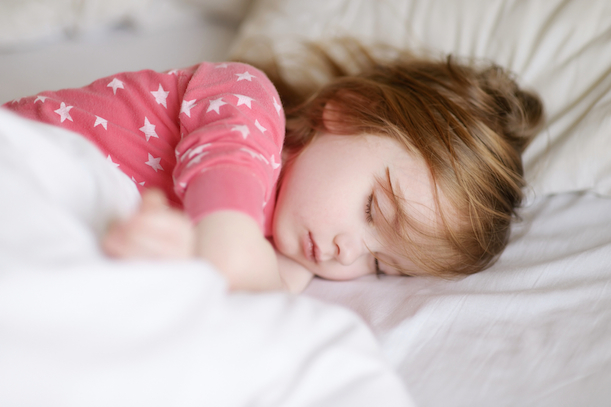
It’s no secret childhood obesity in this country is a growing problem. In the United States, about 12.7 million children and adolescents are obese, according to the Centers for Disease Control and Prevention. Nearly 9 percent of kids aged 2 to 5 are obese, compared to 17.5 percent of kids aged 6 to 11 and 20.5 percent of kids aged 12 to 19.
One new study, published in the International Journal of Obesity, partially blames irregular bedtimes for young children. Researchers at The Ohio State University College of Public Health found young children, aged 3 to 5, with an inconsistent bedtime were almost twice as likely to be obese at age 11 than those kids with a regular bedtime.
“When kids are sleep deprived, they tend to have changes in appetite, as well as energy and metabolism balance,” said Dr. Jyoti Krishna, director of sleep medicine at Akron Children’s.
Sleep-deprived kids tend to choose high-energy foods, such as those laden with sugar and carbohydrates, over healthier options. In addition, the hormones that tell our bodies we’re full and signal the brain to stop eating get out of whack with lack of sleep. So, kids tend to overeat. Not to mention, sleep-deprived children may feel tired, groggy and have low energy, so they may not feel like exercising.
But while irregular bedtimes have not been proven to cause obesity, Dr. Krishna assures us recommending consistent sleep patterns is important for a child’s overall health — more than just for weight and dietary reasons.
“All of our body’s organ systems have a day/night rhythm, including the function of the gut, lungs, kidneys and various hormones,” he said. “It’s a fantastic interconnectivity of the body. Our sleep/wake routines set multi-organ rhythms. If we live in a fashion where our daily work/sleep routines are more synchronized with sunrise and sunset, it will result in a more healthful life.”
Sleep is vital for everyone, but it’s particularly important for young kids because it directly impacts mental and physical development. And, at no other time in our lives does the brain mature as rapidly as it does throughout infancy and early childhood.
During sleep, energy is restored, tissue growth and repair occur, and important growth hormones are released, among many other things. Research shows mental performance, mood and behavior are affected in kids who get less sleep. This has major implications in learning, social interactions, memory, problem solving and concentration.
“Kids need to keep a good circadian rhythm to tackle the demands of the day, whether that’s school, sports or socializing,” said Dr. Krishna. “Even if your child isn’t in school yet, he is still learning every day and needs proper rest for his developing brain.”
Just as adults can get jet lagged traveling across time zones, kids can too with irregular bedtimes and poor sleep that results. For example, a child who goes to bed at 9 p.m. on a school night, but stays up until midnight on Friday to watch a movie will sleep poorly and experience “jet lag” the next morning.
Even if he sleeps in and still gets the recommended hours he needs, his body is out of rhythm and, therefore, he won’t feel well-rested. It can take 2 to 3 days for his body to get back in sync with sleep-wake routines that are appropriate for the school week.
“When we keep our bedtimes irregular, it imposes unnecessary stress on our biorhythms,” said Dr. Krishna. “This can have a negative downstream effect on other body systems.”
So, how much sleep does a preschooler need? It is recommended the average preschooler, aged 3 to 5, should get 10 to 13 hours of quality nighttime sleep. The key here is quality and quantity both matter.
Dr. Krishna offers a good rule of thumb to determine whether your child is getting the proper rest he needs for growth and development. “Provided there are no other medical issues going on, if your child wakes up spontaneously after a full-night’s sleep, he’s probably getting a good amount of sleep,” he said. “But, if you’re dragging him out of bed and he’s having trouble getting going in the morning, he most likely needs more sleep.”










